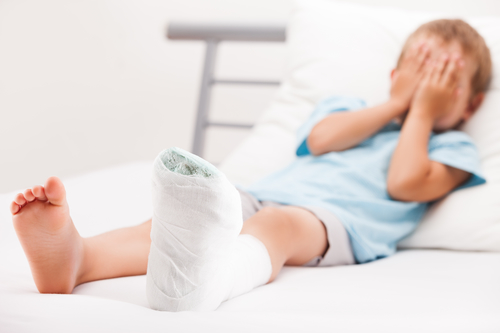
There is a general assumption in the law that children do not have the same ability as adults to make reasonable judgments and decisions in certain scenarios.
To that end, personal injury claims involving children do not always proceed in the same way as those involving adults only.
Below is some information about how personal injury claims involving children tend to proceed.
When the child is the injured party
Children have the right to compensation for pain and suffering, disability and permanent injury just as adults do—and in the same amount as adults. In some circumstances, parents also have an additional right to be compensated for the medical bills they pay to cover a child’s injuries. The procedures for collecting compensation on behalf of children vary, but these rights are consistent across all states.
Because children are unable to negotiate their own claims, parents may negotiate on their behalf. The parent may need to seek court approval before reaching a final claim settlement. This process usually only involves filling out a form and filing it in the court. Insurance companies can provide this paperwork along with filing instructions.
When the child causes the injury
In most cases, the standards of care expected from adults cannot also be applied to children. Minors do not always understand the risk and consequences of their actions in the way adults do. However, the law may be applied differently to different age ranges of children.
Very young children (those who are seven years or younger), for example, are almost never held liable for injuries they cause because they are too young to understand their actions. Their parents or guardians, however, may be responsible for failure to control or supervise those children.
When a court considers a child old enough to know right from wrong, he or she may be held responsible for intentional acts. A child who throws a rock at a car and causes an accident, for example, could be held liable for his or her injuries. Older children are typically measured to the standard of what a child the same age would understand is “reasonably” careful or reckless. Teenagers who are driving a car, for instance, are typically held to the exact same standards as adults.
If minors are held liable for their actions, there are alternative ways for the person injured by that minor to recover compensation instead of collecting from the child, who likely does not have money of his or her own. A homeowner’s insurance policy could cover the conduct of a minor person in an accident that occurred at home, or an auto insurance policy could cover a car accident. If no insurance policy covers the minor’s actions, the minor could be required to pay the judgment upon adulthood. Parents may face some liability in car accidents, depending on the circumstances.
If you have questions about how a personal injury claim involving a child will proceed, work with a skilled car accident lawyer Bronx at the The Law Offices of Evan W. Kohn.

